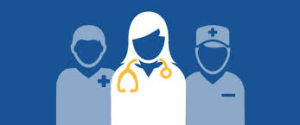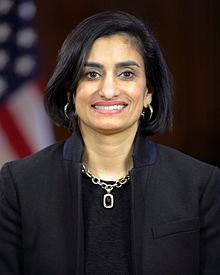COVID-19 Update: Monday, October 5
The following is the latest COVID-19 information from the state and federal governments as of 2:45 p.m. on Monday, October 5.
Pennsylvania Update
 Department of Health
Department of Health
The Department of Health issued a health alert with information on multisystem inflammatory syndrome in children (MIS-C) and reporting instructions for suspected cases among patients younger than 21 years of age.
The Department of Health issued a health alert describing the variety of symptoms that may present in COVID-19 patients and recommending that patients who have been exposed should be tested within two to three days of exposure regardless of the presence of symptoms.
Department of Health – by the numbers
- The number of new COVID-19 cases has been at a higher sustained level in the past week than it has been since the third week of July.
- The number of new daily deaths has not grown appreciably.
- For the week ending October 1, the number of new cases rose 20 percent over the previous week.
- Counties with the highest positivity rates that week were Centre (9.4 percent), Northumberland (9.3 percent), and Snyder (7.8 percent). Places where community transmission is considered greatest, and is related to specific events, are Centre, Northumberland, Montour and Snyder counties.
- The number of patients hospitalized with COVID-19 has grown daily since September 23 but is well below the level of previous months. The number of patients breathing with the help of a ventilator has risen in recent days but it, too, is well below the levels of past months.
 Department of State
Department of State
The Department of State has extended the deadline for practical nurses to renew their licenses for 30 days, until October 31.
Federal Update
Provider Relief Fund
- HHS has updated its Provider Relief Fund information about the Phase 3 general distribution that was announced last week. Go here for information on how to apply for Phase 3 funding and here for the terms and conditions for Phase 3 payments. Today is the first day for providers to apply for Phase 3 funding; the application deadline is November 6.
- HHS has updated its Provider Relief Fund FAQ with seven changes marked “Modified 10/1/2020.” The changes, found on pages p. 23, p. 30 (two changes), and p. 31 (four changes), address the eligibility of different types of providers for Phase 3 general distributions.
Department of Health and Human Services
 HHS Secretary Azar has renewed the COVID-19 public health emergency declaration, which was set to expire on October 23. With this renewal, the CMS waivers made possible by the declaration will remain in effect until January 21 unless the emergency is renewed again. View the renewal notice here. In late September HHS’s Office of the Assistant Secretary for Preparedness and Response held a webinar on optimizing personal protective equipment during the COVID-10 pandemic. The office prepared this document to support the webinar. Go here to see the presentation used during the webinar and for links to a transcript and a recording of the webinar.
HHS Secretary Azar has renewed the COVID-19 public health emergency declaration, which was set to expire on October 23. With this renewal, the CMS waivers made possible by the declaration will remain in effect until January 21 unless the emergency is renewed again. View the renewal notice here. In late September HHS’s Office of the Assistant Secretary for Preparedness and Response held a webinar on optimizing personal protective equipment during the COVID-10 pandemic. The office prepared this document to support the webinar. Go here to see the presentation used during the webinar and for links to a transcript and a recording of the webinar.- HHS’s Office of the Inspector General has updated its work plan for audits, evaluations, and inspections that are under way or planned in October. Among the subjects of audits will be HHS’s program for paying for care for uninsured COVID-19 patients and COVID-19 testing data for federal programs.
Centers for Disease Control and Prevention
- The CDC has updated its analysis of the changing age distribution of COVID-19 patients from May through August.
- The CDC has updated its guidance about how COVID-19 spreads.
Resources to Consult
Pennsylvania Department of Human Services
Pennsylvania Department of Health
Centers for Disease Control and Prevention
 The enrollment increase can be traced to rising unemployment, with many people losing their employer-sponsored health insurance. The new figures cover five months, from February through June, the latter four of which marked the beginning of the COVID-19 pandemic.
The enrollment increase can be traced to rising unemployment, with many people losing their employer-sponsored health insurance. The new figures cover five months, from February through June, the latter four of which marked the beginning of the COVID-19 pandemic. Such a shift would be especially challenging for Pennsylvania safety-net hospitals because they already serve higher proportions of Medicaid and uninsured patients than the typical community hospital.
Such a shift would be especially challenging for Pennsylvania safety-net hospitals because they already serve higher proportions of Medicaid and uninsured patients than the typical community hospital. DHS has issued a Medical Assistance Bulletin on COVID-19 specimen collection and testing at pharmacies
DHS has issued a Medical Assistance Bulletin on COVID-19 specimen collection and testing at pharmacies Provider Relief Fund
Provider Relief Fund Congress has passed, and the president has now signed,
Congress has passed, and the president has now signed,  The NIH has
The NIH has  Governor Wolf and Health Secretary Levine introduced “COVID-19 Alert PA,” a new cell phone app that the state hopes will facilitate contact tracing. The app, which works on Android and Apple cell phones, uses bluetooth technology to identify people who were recently near someone who has been diagnosed with COVID-19. The app notifies individuals who may have been exposed and directs them to resources but does not provide the name of the person who was diagnosed and does not provide the state with the names of people who may have been exposed, protecting the privacy of everyone involved and leaving responsibility to act at the discretion of the people with the app on their phone. The app, which is free, does not track people and their location. Learn more from this
Governor Wolf and Health Secretary Levine introduced “COVID-19 Alert PA,” a new cell phone app that the state hopes will facilitate contact tracing. The app, which works on Android and Apple cell phones, uses bluetooth technology to identify people who were recently near someone who has been diagnosed with COVID-19. The app notifies individuals who may have been exposed and directs them to resources but does not provide the name of the person who was diagnosed and does not provide the state with the names of people who may have been exposed, protecting the privacy of everyone involved and leaving responsibility to act at the discretion of the people with the app on their phone. The app, which is free, does not track people and their location. Learn more from this  The Courts
The Courts In a tweet earlier this week, Centers for Medicare & Medicaid Services Administrator Seema Verma wrote that
In a tweet earlier this week, Centers for Medicare & Medicaid Services Administrator Seema Verma wrote that According to the study,
According to the study, The cut was mandated by the 2010 Affordable Care Act but has never been implemented.
The cut was mandated by the 2010 Affordable Care Act but has never been implemented.